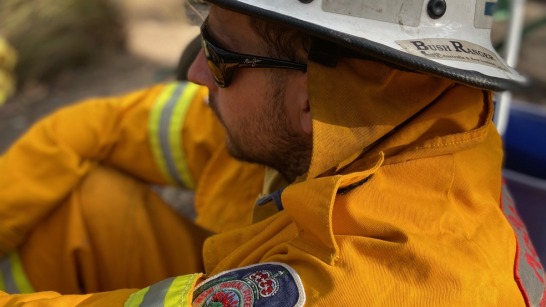Tom-Erik Kuhlen, dual student at KION Group IT, said the seeds to an idea he had can be traced to his semester spent in the US more than a year ago. He envisioned some type of event that would bring the company’s newest employees together and serve several needs. The first person he thought of contacting and discussing how to make his idea become a reality was Christopher Nagel, SAP purchasing consultant KION Group IT in Aschaffenburg.
“What was going through my brain while studying in Santa Barbara was developing something that served three purposes – educating my peers on an important company topic, helping them build a network within the company and preparing them for the digital transformation the company was undergoing,” explained Kuhlen, who is based in Hamburg. He had met Nagel at an internal event within IT and they remained in contact. Over the next two years, they both realized how important it was for students and new joiners to have opportunities to build a network not only within their skill area, but also throughout the entire company. In 2018 KION launched a Digital Campus at its Frankfurt headquarters and Kuhlen and Nagel knew that this would be the perfect place to hold their event. According to Nagel, its somewhat unconventional work atmosphere, the informal setting and the team itself were all decisive factors in deciding to get in touch with the digital professionals and developing their concept further.
“The Digital Campus team was already working with other groups at KION to help them with their transformation projects and challenges so it was only natural to take our idea to them and finetune it before taking it to the next level.” Though both work fulltime in teams at their respective locations, much of the initiative was developed outside of work. For Kuhlen, he was even able to turn the event into the focus of his thesis for his degree.
Finetuning with input from friends and colleagues
Feeling confident with their concept’s development at the Campus, they next began gathering feedback and input from their target participant group. Following several discussions with potential participants, their colleagues and friends, they knew they were onto to something that could work. They were uninterested in running a hackathon and did not really want the workshop groups to be in competition with one another necessarily. They were more interested in having teams develop ideas that could eventually be realized within KION as part of the overall digitalization process and regardless of which part of the company they worked for. Every participant came to the event with an innovative ‘product’ they wanted to develop.
“To legitimize the solutions the teams would develop, we knew we needed a jury,” explained Nagel, adding “and that we were able to get members from across the board of senior management, was incredible!”
A limit of 15 participants was set partially based on Digital Campus recommendations and partially because the two organizers were only interested in having highly motivated participants attend “So anyone who was interested, had to apply and was interviewed by us”, said Kuhlen. Thus, this past July, it all came together for the two young IT colleagues. After three very long and stressful days, the digital innovation event not only had been launched, but was a rousing success. Participants from KION brands STILL, Linde and Dematic along with colleagues from KION Group IT joined in the maiden challenge.
Both Kuhlen and Nagel are quick to add that the months of planning leading up to the launch were not always smooth sailing. While Kuhlen was still in California, the two had cope with the 9-hour time difference to begin the work of growing the idea. Next, they both had initially intended to have the event take place in October 2019, but since most of the participants were students, that month was bad due to many of them having academic priorities to attend to. Instead of having eight months to rollout the event, they now found themselves with just five.
Despite the stress and some of the challenges to see their vision through to the end, both admit it was worth it. “If one of the innovations pitched were to become a real solution within the company, then that would be the best that could happen,” admits a grinning Kuhlen.

